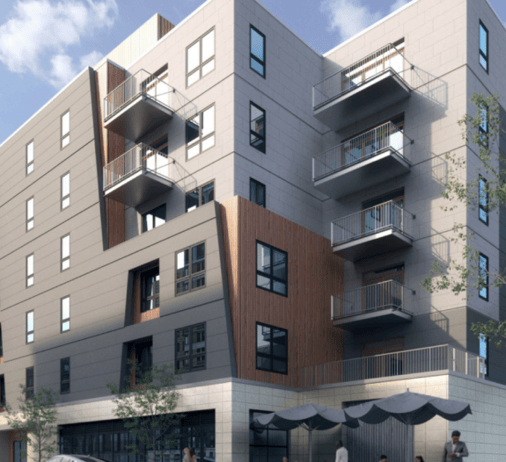Budgeting for a New Homeowners Association: What You Need to Know
Picture this, it's move-in day and you couldn’t be more thrilled to move into your new condo in downtown Boston. The movers have just dropped off your couch (that didn't fit in the stairwell), and you think all the stressors of this new journey are far behind you. Fast forward one month, and you get a letter in the mail from your Homeowners Association (HOA) about a sudden 25% rise in your condo fees. You wonder, how did this happen? How am I supposed to pay for this?
--
The Role of Developers in the Success of Homeowners Associations (HOAs)
When purchasing a new condominium, many buyers are filled with excitement as they embark on a new chapter of homeownership or explore a new city. The last thing they want is the burden of dealing with unpredictable condo fees or complications from their Homeowners Association (HOA). Unfortunately, many HOAs are not set up for success from the start.
Buyers often dream of a seamless transition into their new condo, where they can enjoy the benefits of luxurious living and a vibrant community. However, the reality is that poorly managed HOAs can quickly turn this dream into a nightmare. From unexpected fee increases to disputes over maintenance responsibilities, buyers can find themselves caught in a web of frustrations and financial burdens.
Developers play a crucial role in the success of an HOA by establishing a strong foundation and ensuring proper budgeting. They must accurately assess expenses and transparently communicate them to buyers to avoid underfunded HOAs and sudden fee increases. Unfortunately, many developers are unaware of the potential challenges posed by HOAs, which can damage their reputation and lead to legal complications. In this blog, we will delve into these common challenges of establishing new Home Owners Associations, explore the associated risks, and share strategies for developers to proactively plan HOAs, ensuring positive resident experiences.
Perspectives on Cost: Buyers vs Developers
In today's market, condo buyers often have high expectations. This is especially true in Boston, where many seek luxurious communities with an abundance of attractive amenities and responsive property services. While this high-quality resident experience is sought after, it often comes at an additional cost: high condo fees paid out of pocket by buyers.
Typically, condo fees cover the cost of ongoing maintenance, capital improvements, and operational expenses of the building. An HOA is established to oversee the allocation of funds and perform strategic annual reviews to ensure condo fees are sufficient. The challenge with condo fees often lies in new construction properties, where future expenses and maintenance of a property are predictions, rather than reality, yet. This is where the HOA planning becomes a priority, yet often a headache, for many developers.
From a developer's perspective, the main goal during the construction of a new development is to sell as many condos within the property, as close to the certificate of occupancy, at the highest price possible. The last thing they want to think about is convincing buyers to buy in, literally, to high condo fees. So, what happens? Many developers opt for lower fees to attract more buyers, planting a seed for bigger problems down the road.
Here’s the problem: if condo fees are set too low during the purchase process, buyers may mistakenly believe they are getting a good deal on living expenses. Unfortunately, this can lead to inadequate funding for proper building operations, causing the HOA to struggle.
As a result, the HOA may need to suddenly increase fees for each new owner by 25-75% to keep things afloat. Now you are a developer who has a new property, full of angry owners and potential legal disputes coming your way.
How to Set the Right Condo Fees
When determining the right condo fees for your new development project, it is crucial to take into account the duration of the construction project and current market conditions. Factors such as insurance, maintenance, utilities, and staff salaries can all affect how fees fluctuate. It is important to strike a balance between setting fees that are affordable for owners while still generating enough funds for the HOA to effectively manage and maintain the property.
Many developers prefer to see condominium fees set at 35-40 cents per square foot or lower, as this helps keep fees affordable and appeals to potential buyers.
However, a well-managed homeowners association (HOA) often has slightly higher fees, typically above 50 cents per square foot. In mid-market properties, condo fees usually range from 50 - 70 cents per square foot. For premier luxury condos, fees can be anywhere from 75 cents to 2.00 dollars per square foot per unit. Working with the right management team can help you plan for future operational costs and set fees accordingly.
Importance of Budget Transparency
One of the key elements of successful HOA management is budgeting. A well-planned budget allows for the timely payment of bills, maintenance of common areas, and preparation for unforeseen expenses. In addition, it also ensures that the HOA has enough funds to cover any necessary repairs or upgrades to the property in the future, without leaning on owners' pockets.
When setting an HOA budget that directly affects the rise or fall of condo fees, it is important to have transparency with all buyers during the purchase process. In new construction, projects usually last between 18-36 months and budgets are reviewed and adjusted on an annual basis. Oftentimes you see a rise in insurance and changes to the scope of work; these items have a direct impact on future budgeting and in turn, condo fees.
To provide transparency to buyers, all purchase agreements should have specific details regarding condo fees being estimates, and subject to change throughout the project lifetime. This ensures that there are no surprises on the buyer’s side when closing. It is also important to clearly define the specifics of condo fees and differentiate between the financial responsibilities of the owner and those of the HOA. By keeping a close eye on projected fees and practicing transparency with buyers, developers can ensure they adequately cover projected property expenses, setting the future HOA and their buyers up for success.
Benefits and Outcomes
By implementing effective planning and budgeting, developers can position their Homeowner's Associations for success, greatly benefiting the long-term profitability of development projects. HOAs have the potential to add value to your property and enhance the overall experience for residents, or they can be the woe of residents and ultimately lead to decreased property values.
By eliminating the chances of unexpected increases in condo fees that catch your condo owners off guard, developers can expect several positive outcomes:
- Minimized risk of "bait and switch" allegations from dissatisfied buyers.
- A smooth transition from development to property management & HOA operations.
- Happier residents at your condominium community.
A Unique Solution for HOA Budgeting for Developers
At CHARLESGATE, we specialize in offering expert advice to developers on setting realistic condo fees and HOA planning and budgeting strategies. With our extensive experience in property management, we understand the importance of taking a comprehensive approach to HOA management. This is crucial not only for maintaining property values but also for ensuring resident satisfaction. Trust CHARLESGATE to optimize your HOA management experience, get in touch with our team today.

